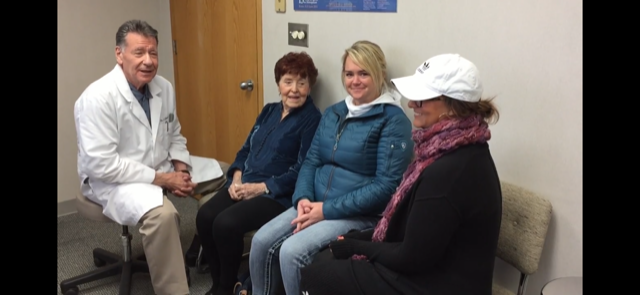Dr. N provides natural hormone regimens for both men and women including hormone pellet implants to keep you looking years younger, restore your sex life, maintain lean body mass, resolve hot flashes, sweats, sleep disturbances, headaches, fatigue and depression. Get back to being you. Call (248) 644-7200 or email: jln35210@gmail.com
If your uterus has been surgically removed before you have reached menopause but you still have your ovaries you could reasonably expect your ovaries to continue to produce sex hormones. Unfortunately, this is not always true and ovarian failure occurs frequently in retained ovaries following a hysterectomy.
There are reasonable considerations for keeping your ovaries when a hysterectomy is indicated. This is certainly true prior to age 45 and in some cases even after. This may not be possible when the ovaries are diseased, or if there are conditions such as extensive endometriosis, or a malignancy of pelvic organs.
The rationale is that your ovaries may to continue to produce estradiol and testosterone until the age your natural menopause would occur between the ages of 48-52.

In addition, following a natural menopause even if the ovaries no longer produce significant amounts of estrogen they may continue to produce testosterone the hormone most closely associated with sex drive, energy levels and maintenance of lean body tissue. Some of the testosterone may also be converted to estrogen in tissues of the body by a process called aromatization. Estrogen levels that result from this process may play a role in maintaining the integrity of your estrogen-dependent tissues
Accordingly, it makes sense to keep your ovaries if possible as it may preclude your need for hormone replacement until the time of your expected menopause.
“I had a hysterectomy and I kept my ovaries but I have menopausal symptoms, hot flashes, I’m tired all the time and I can’t even think of sex. I went to my Dr and he says I don’t need hormones because I still have my ovaries. Is he right?”
No some physicians just assume that if the ovaries are there they must be functioning.
“So, what do I do about this?”
First, you are probably right and your problems are related to ovarian failure. You can have blood tests performed to document that ovarian failure has occurred. If your present physician is not inclined to order the tests for you find one that will. Have your blood estradiol and testosterone tested. If the levels of estradiol and testosterone are low and your Follicle Stimulating Hormone (FSH) is elevated there is little question that ovarian failure has occurred. FSH, is the hormone secreted by the pituitary gland that signals the ovary to make more estrogen. If the ovary is failing in its ability to do this, the pituitary produces higher levels of FSH in an effort to drive the failing ovary to produce more estrogen. Even if these tests are in the normal range if the ovaries are struggling symptoms may still be present.
“Okay, then what do I do?”
If the blood tests are normal and the symptoms are suggestive of being of menopausal origin, a trial of hormone therapy if desired is indicated. If the symptoms resolve, you have the answer.
“What if the hormones don’t relieve your symptoms?”
The most frequent reason for persistent symptoms is your current HRT program is not effective. If your physician cannot provide you with a more effective program try and find one that can. Ultimately when other methods of HRT have failed I have found that hormone pellet implants of estradiol and testosterone rarely fail to relieve symptoms and restore sexuality. If you would like to know more about hormone implant therapy click the link below,
Bio-Identical Hormone Implant Therapy
“What if my doctor tells me that I have ovaries and I don’t need hormones?”
You are in charge your physician works for you. Not all physicians are amenable to shared decision making. You might consider finding a physician.
Dr. N has specialized in the care of menopausal women for over 30 years. His office is located in Bingham Farms, Michigan. For an appointment call (248) 644-7200
IMPORTANT: This website is for educational purposes only. It is not intended to suggest a specific therapy for any individual and must not be construed to establish a physician patient relationship.